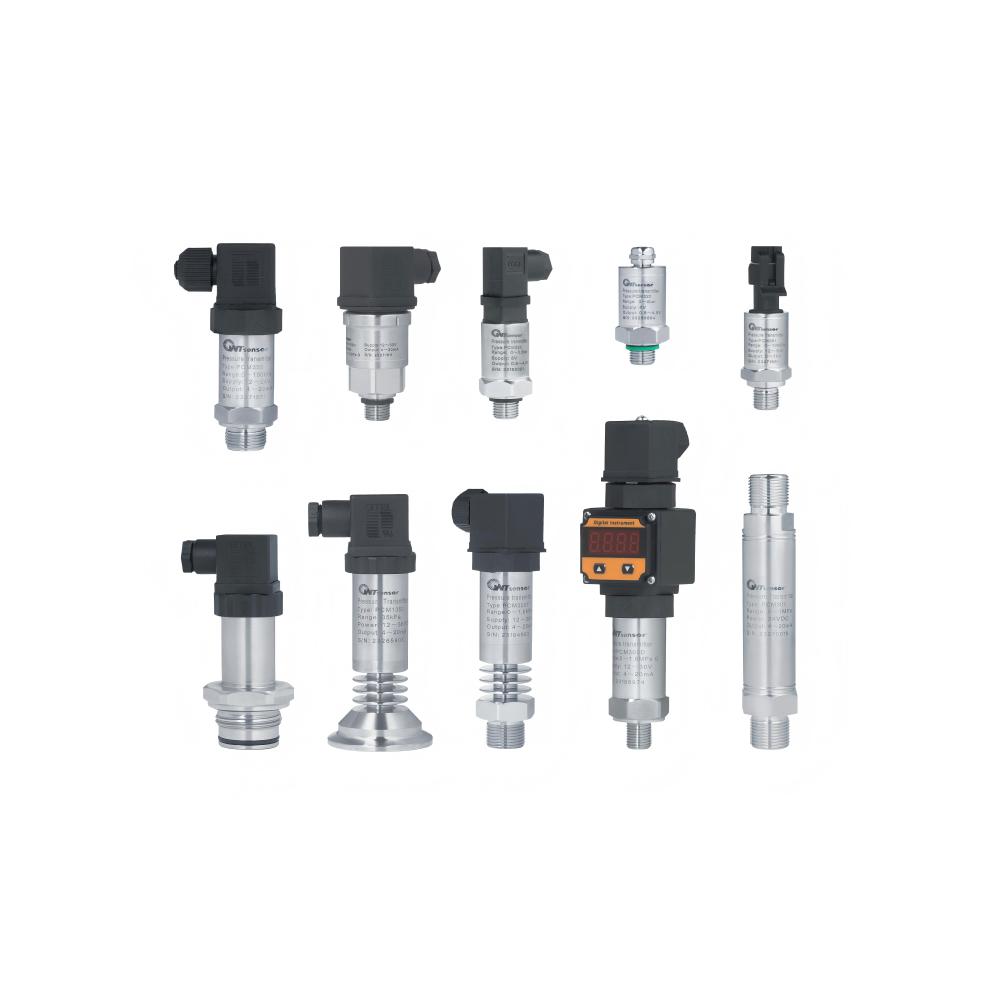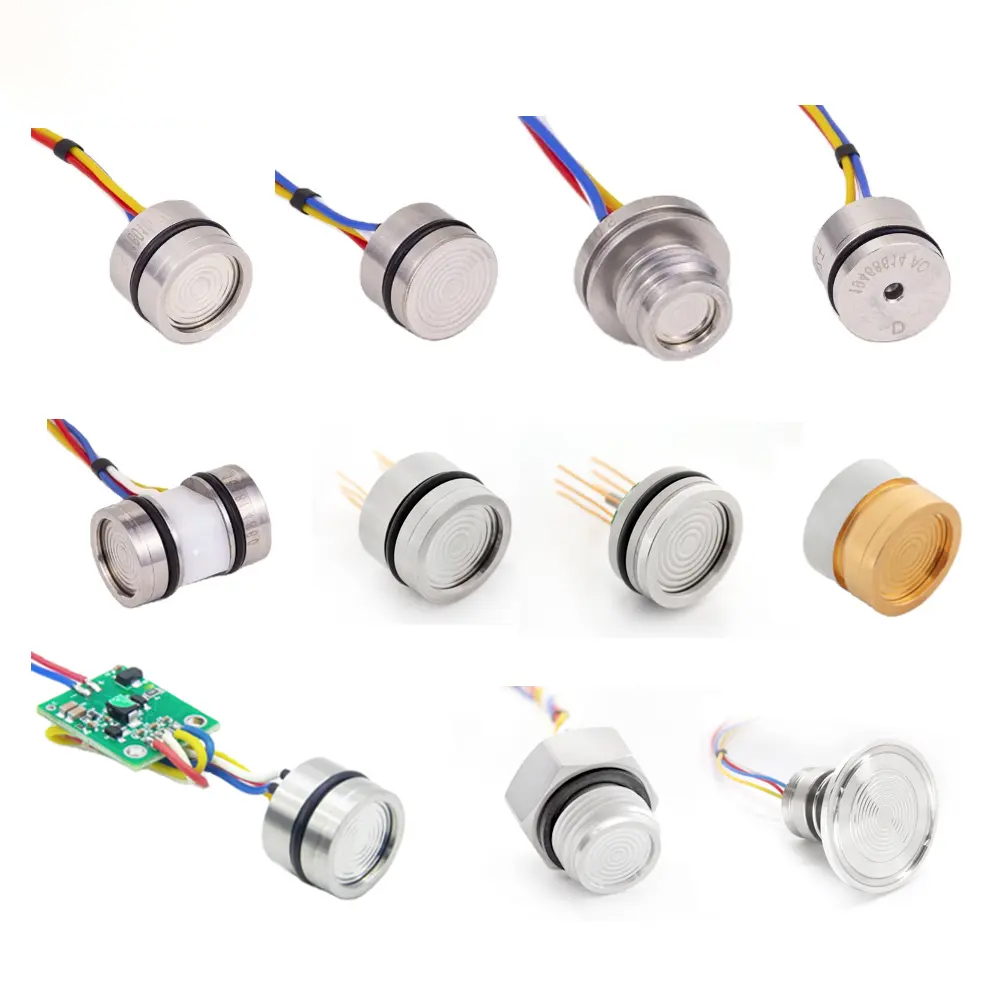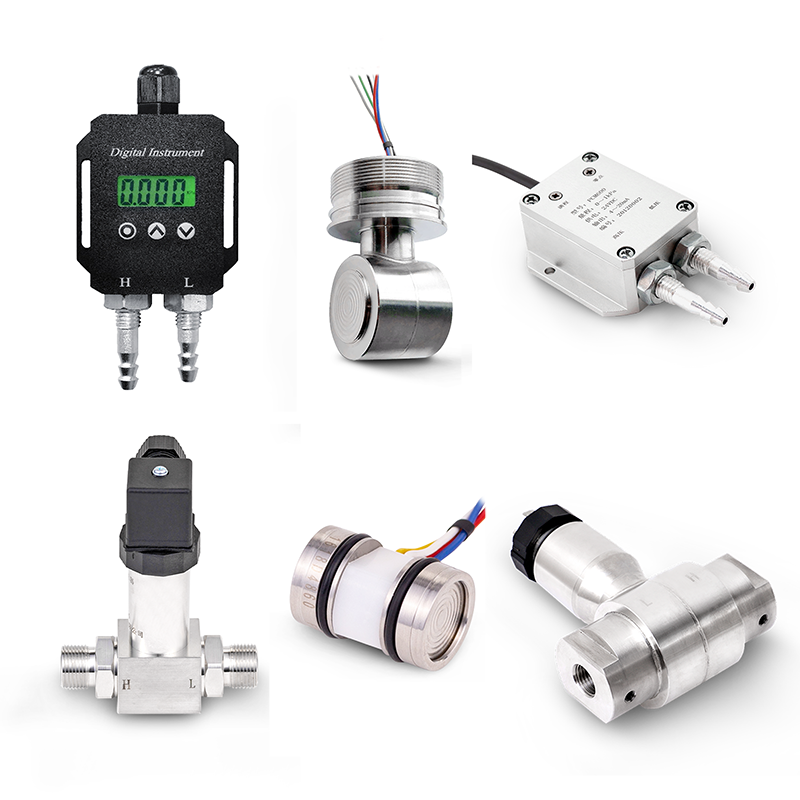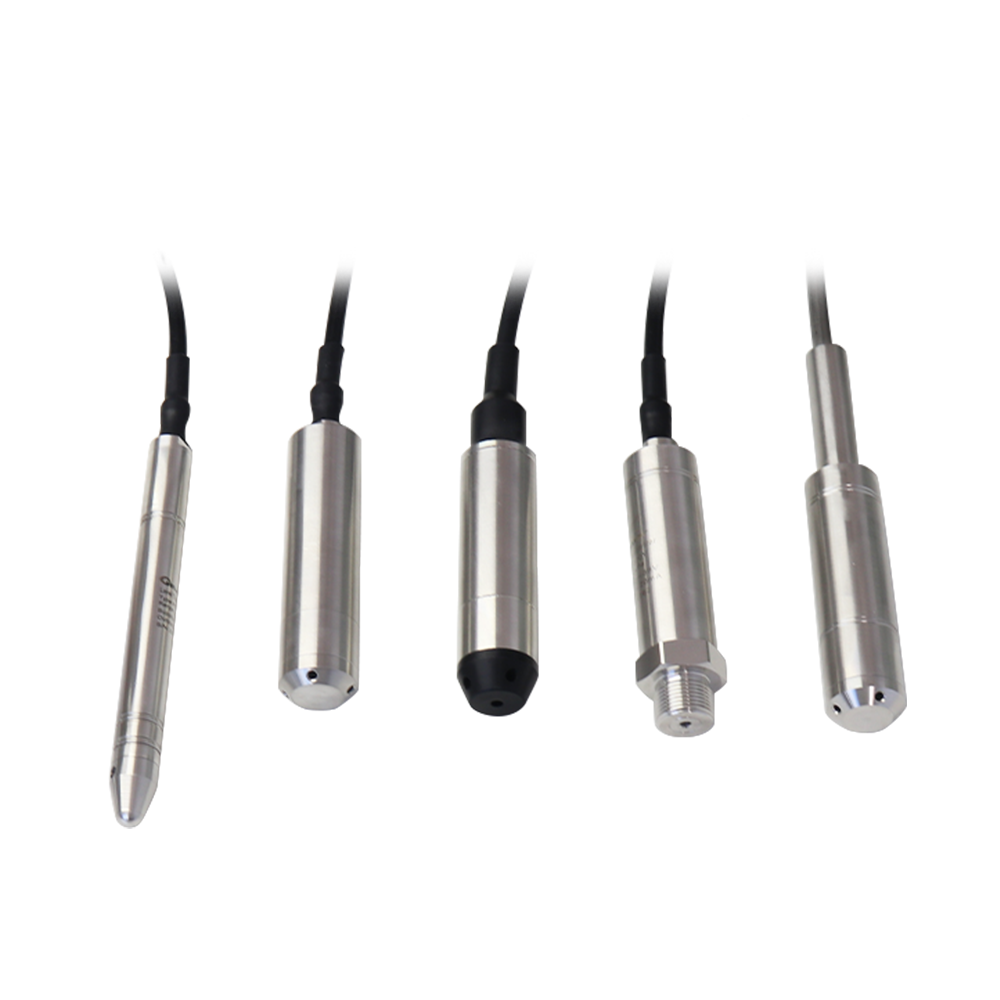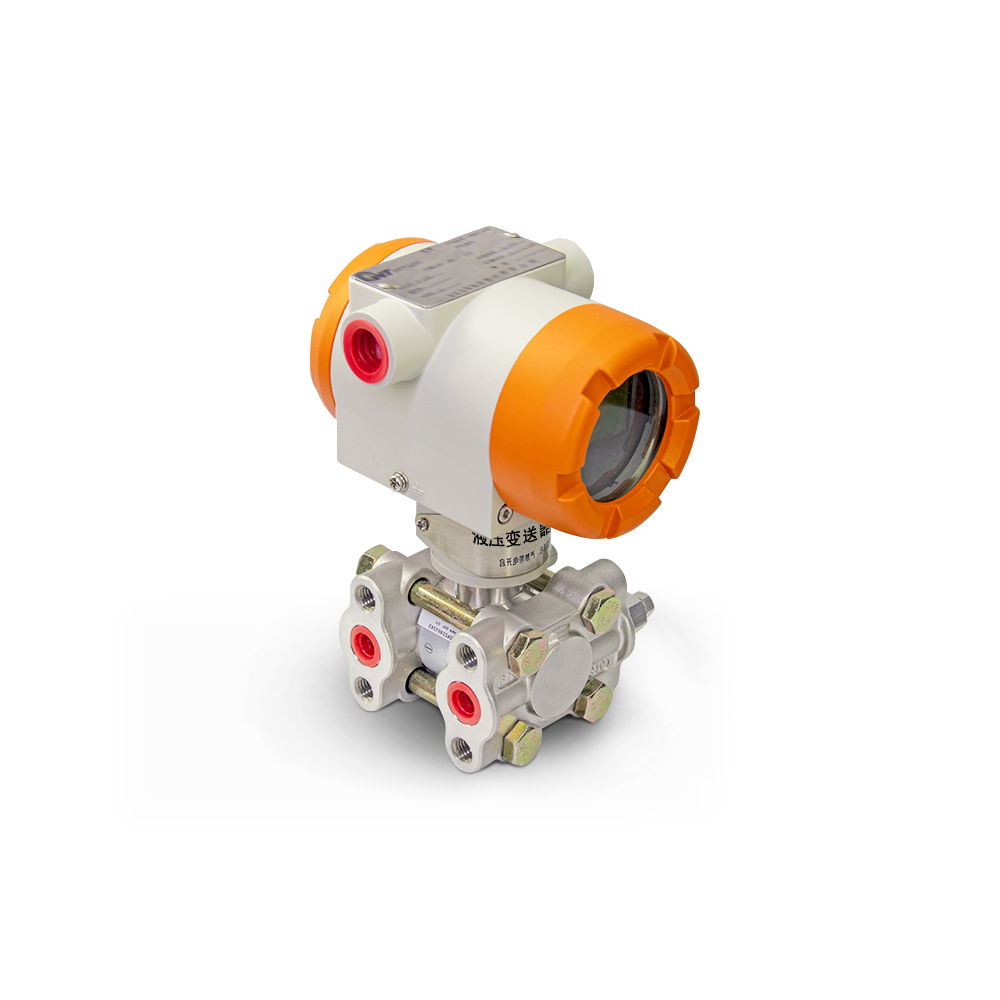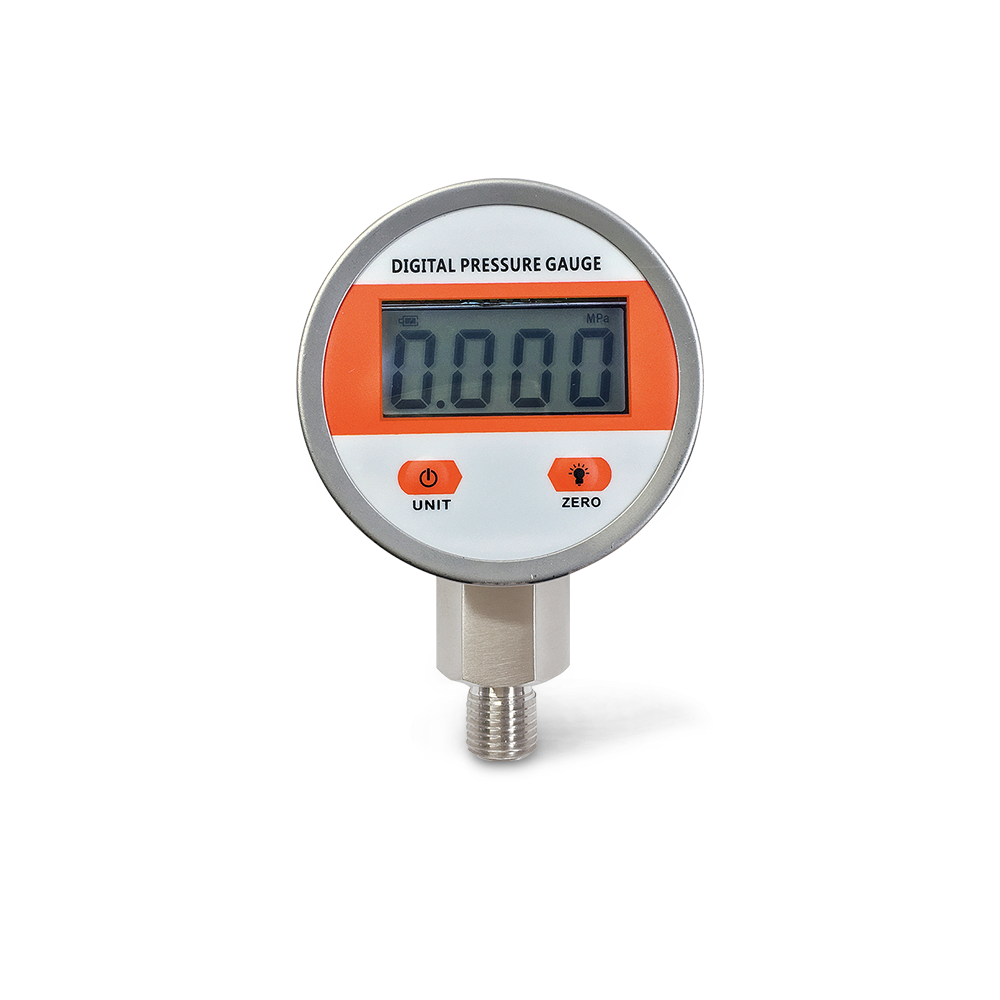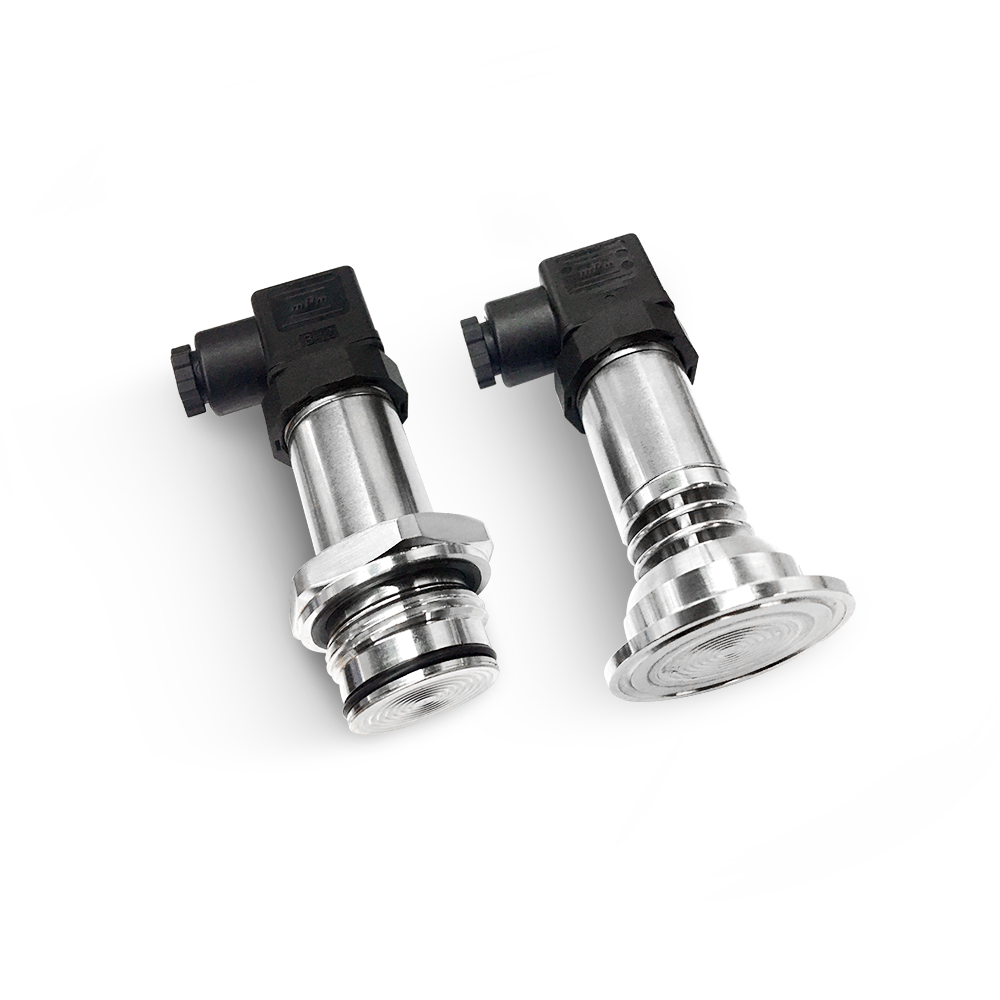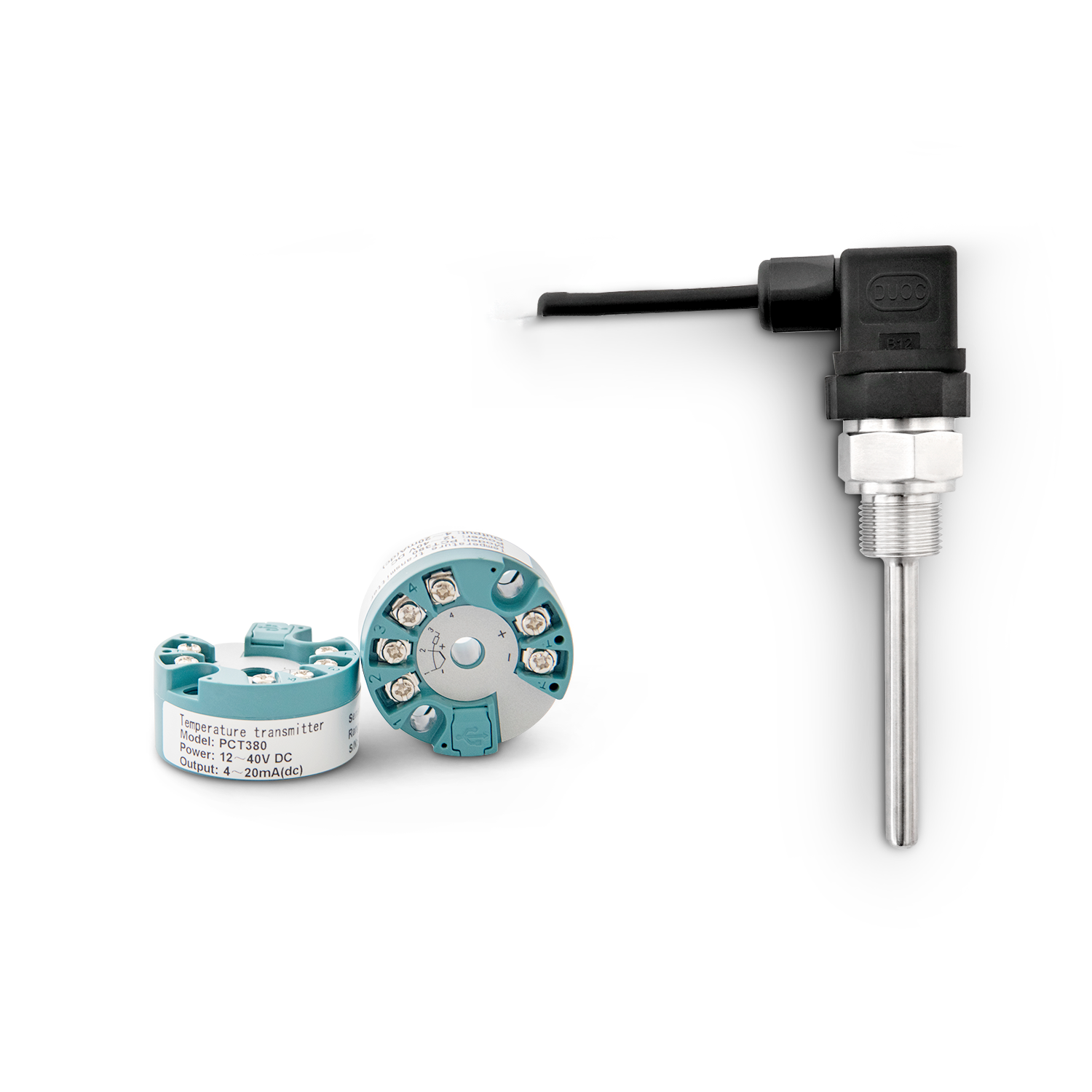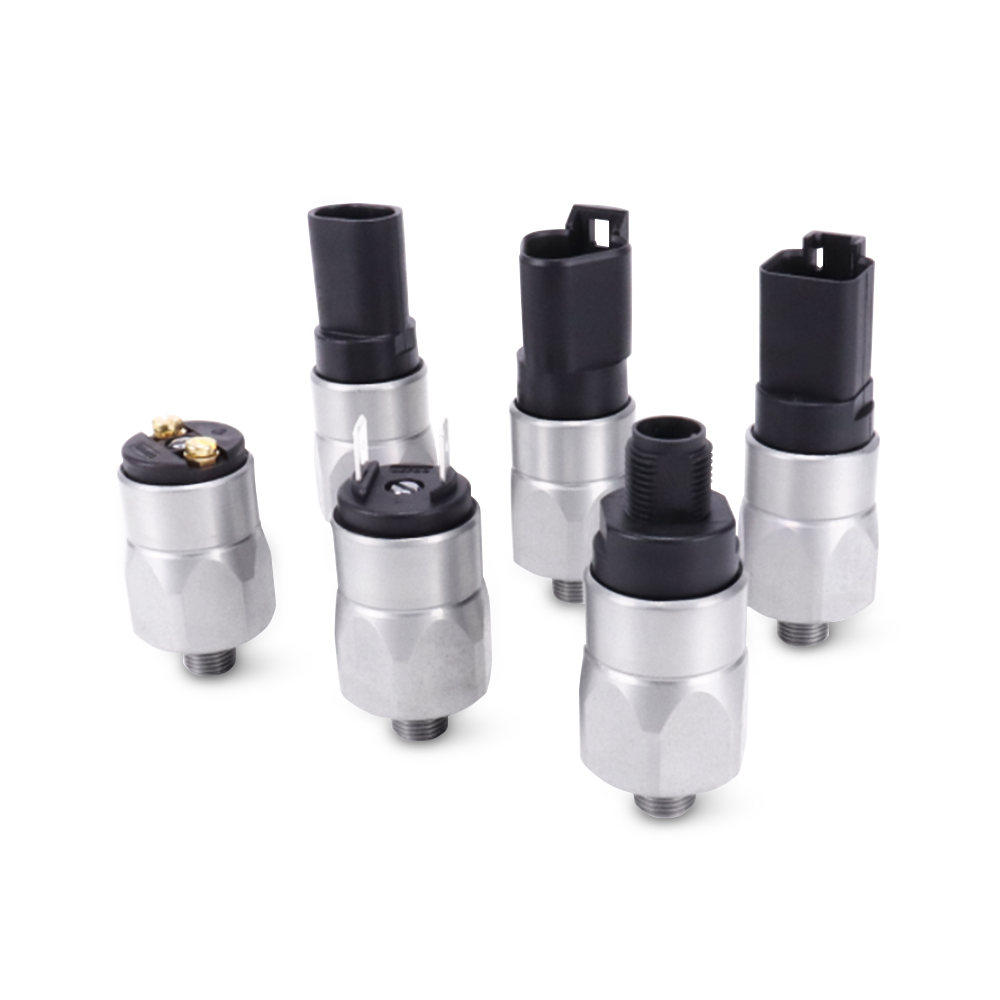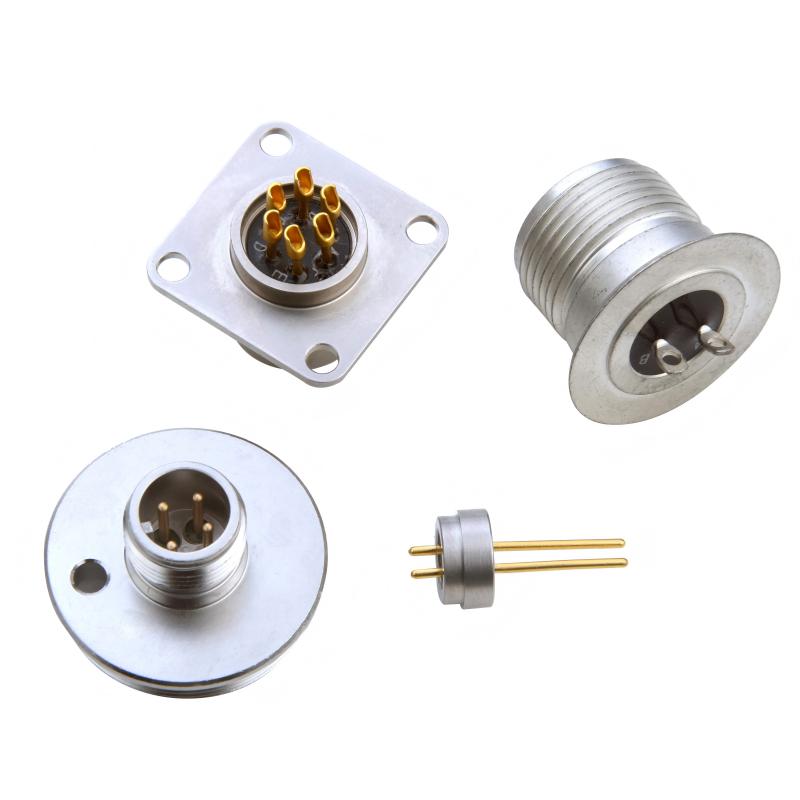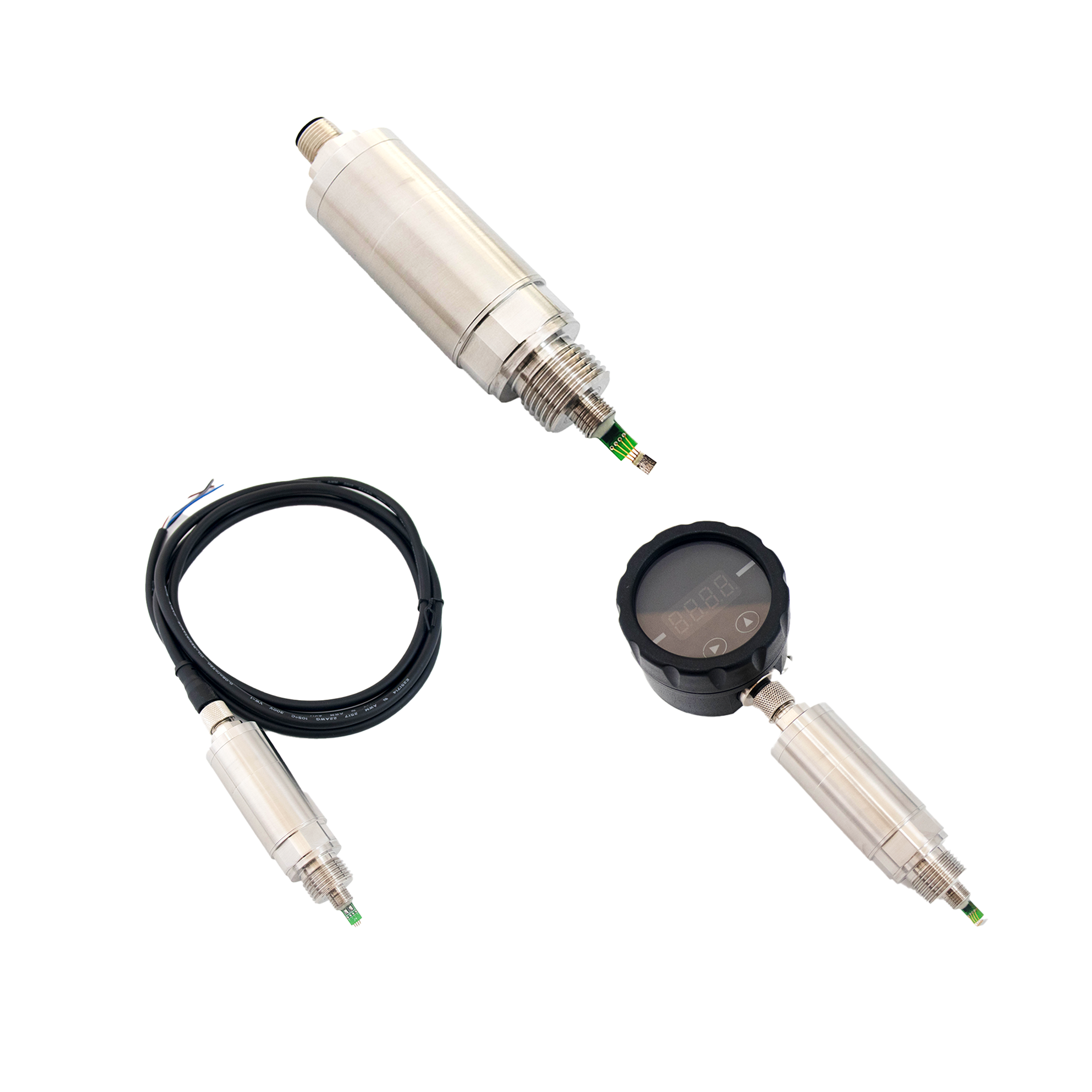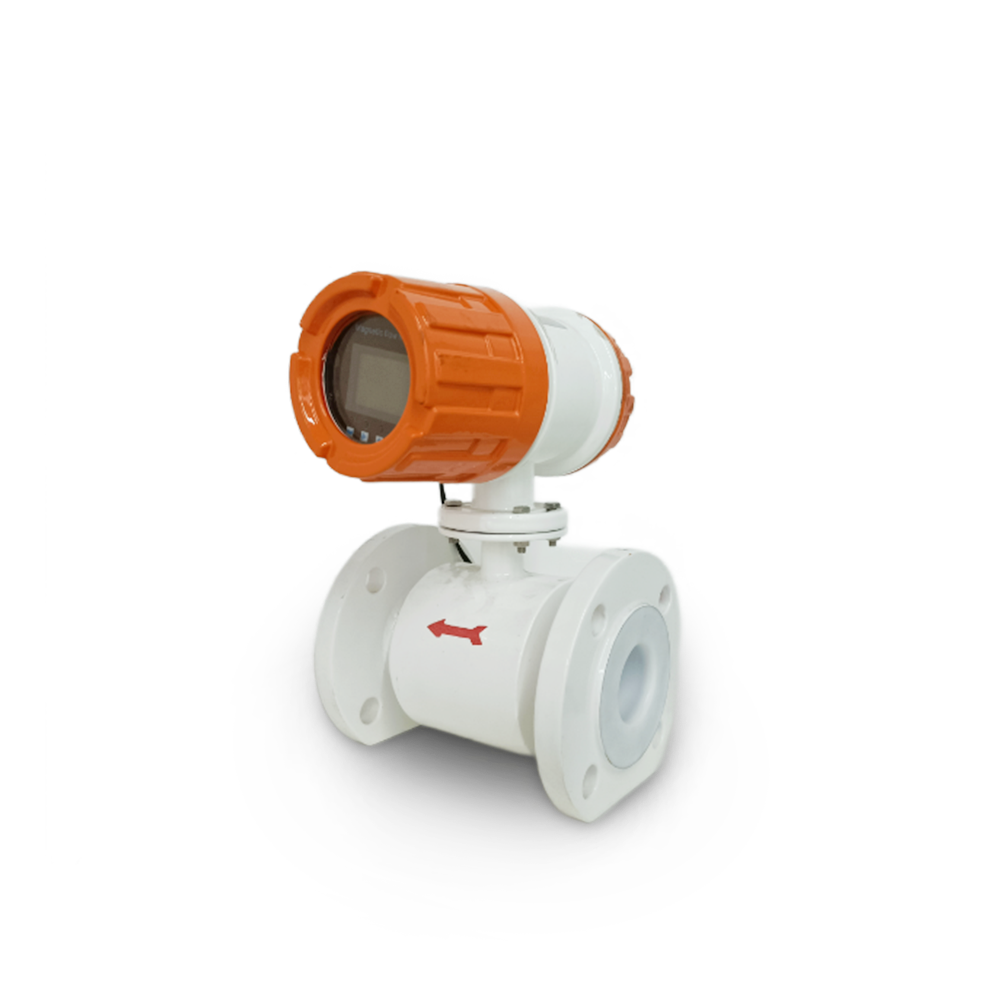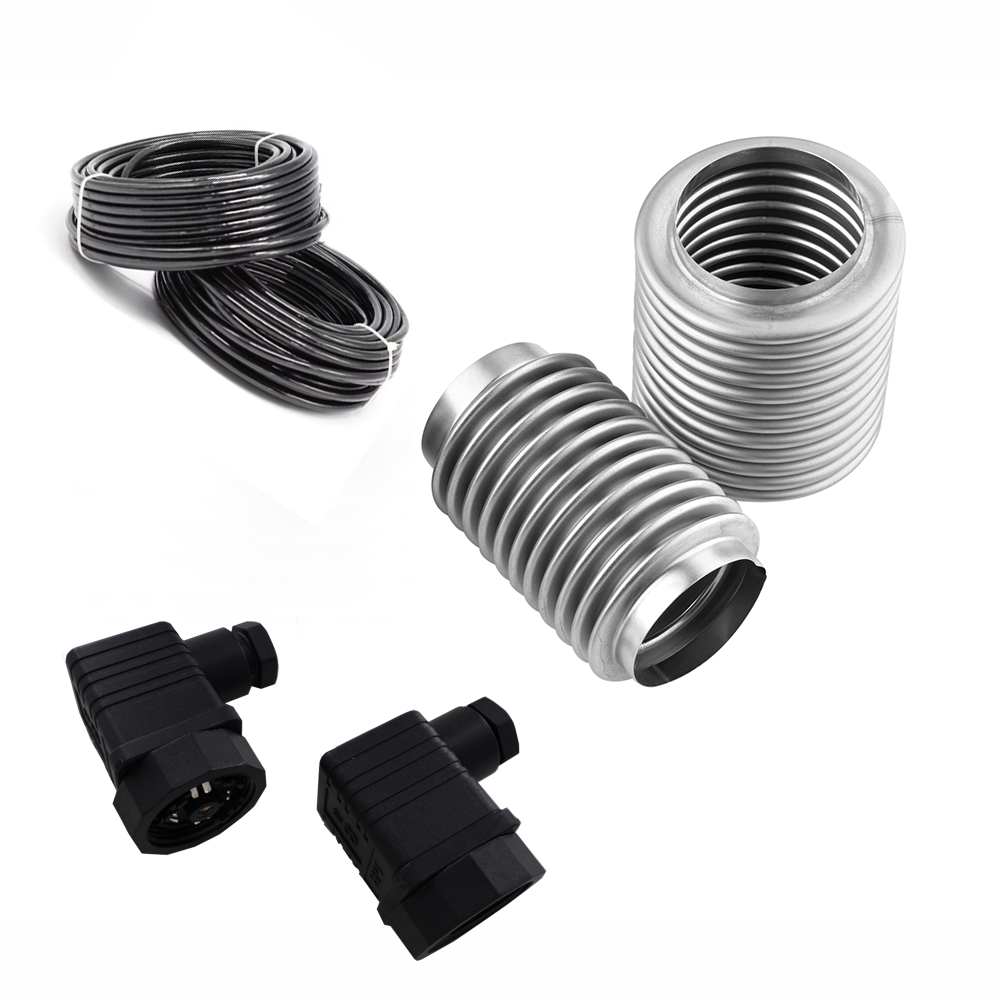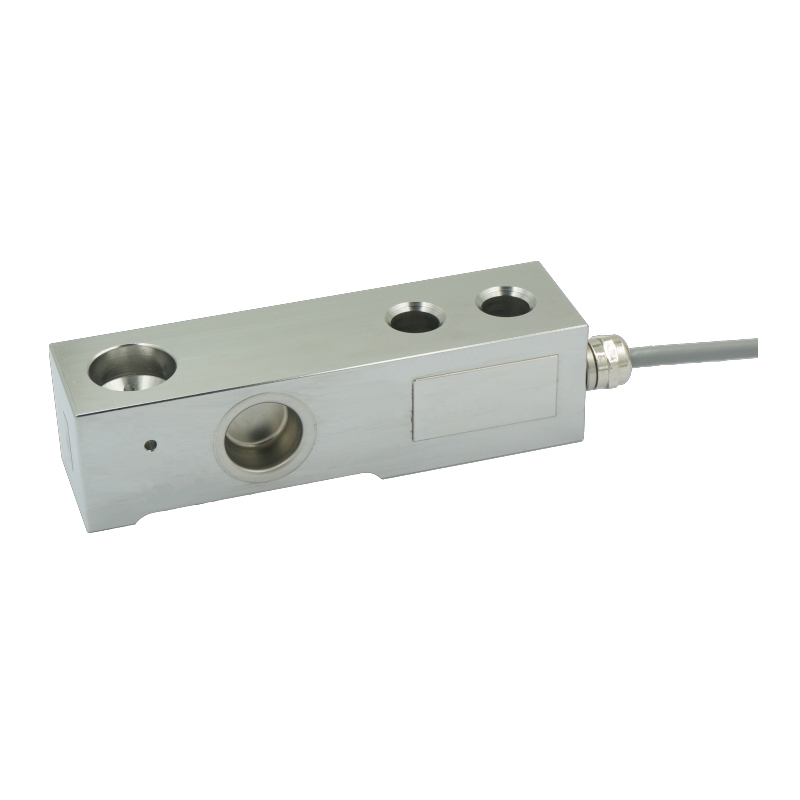Monocrystalline Silicon Pressure Transmitter: Application in Industrial Tanks for Liquid Level Measurement
From: Issued date 2025.02.19 Back
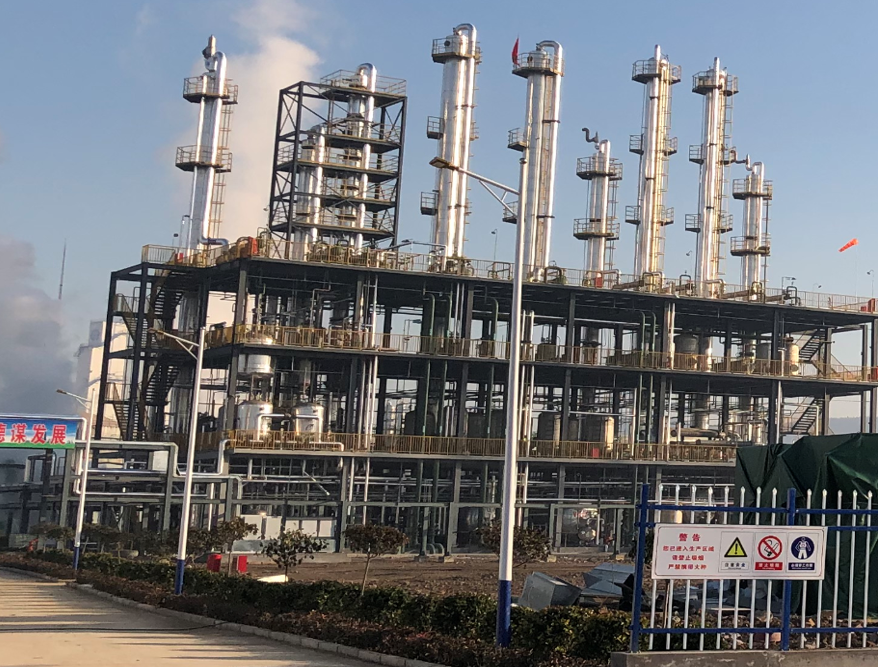
Monocrystalline silicon pressure transmitters are widely used in industrial applications to measure the liquid levels in tanks due to their high accuracy, stability, and ability to withstand harsh environments. These transmitters work based on the principle of measuring the pressure exerted by the liquid column in a tank, which is then converted into an electrical signal. Here, we will explore their principle of operation, applications, advantages, and disadvantages in different types of industrial tanks.
Principle of Operation
A monocrystalline silicon pressure transmitter works by utilizing a diaphragm sensor made of high-quality monocrystalline silicon. The diaphragm is exposed to the pressure of the liquid in the tank. When the pressure changes, it deforms the diaphragm. The monocrystalline silicon material is highly sensitive to these deformations, which are measured using piezoresistive effects. This means that the electrical resistance of the silicon changes when the diaphragm flexes under pressure, and this change is correlated to the pressure exerted by the liquid column. The change in resistance is then converted into a corresponding output signal (usually 4-20 mA or digital signal), which represents the liquid level.
Application in Industrial Tanks
Monocrystalline silicon pressure transmitters are used in a wide range of industrial tanks, including open-top tanks, sealed tanks, and pressurized vessels. They are particularly beneficial in applications where high precision and reliability are required in measuring the liquid level in tanks used for storage, processing, or production purposes.
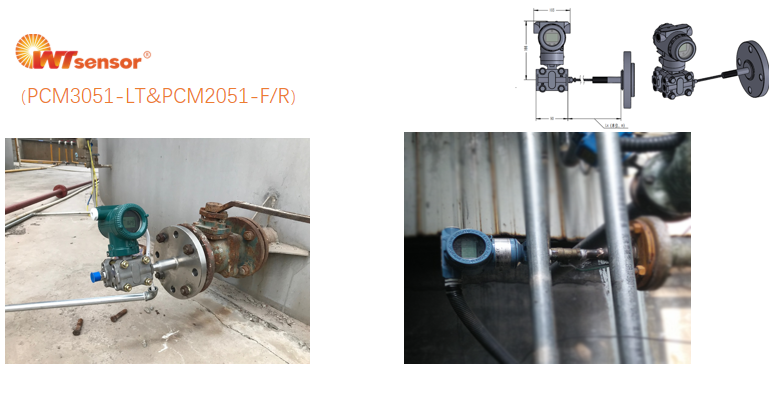
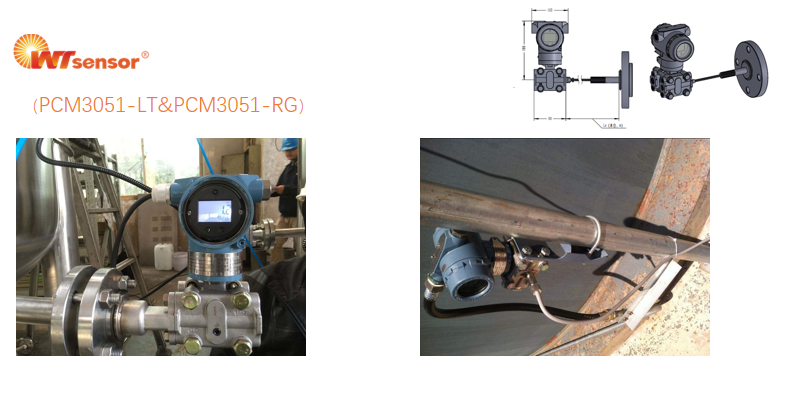
1.Open-Top Tanks: These are tanks that are not sealed and are exposed to atmospheric pressure. In these tanks, the liquid level can be measured by monitoring the pressure at the bottom of the tank. The pressure exerted by the liquid at the tank’s base is directly proportional to the liquid height, making monocrystalline silicon transmitters ideal for this application.
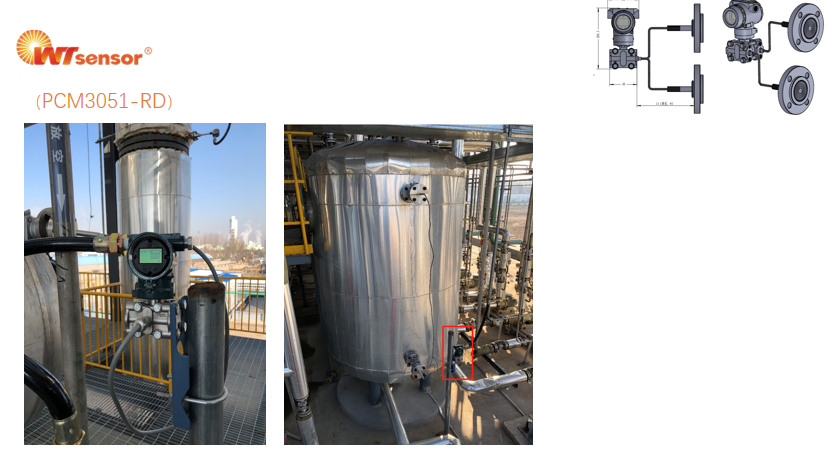
2.Sealed Tanks: Sealed tanks are those that are pressurized or are part of a closed system. Monocrystalline silicon pressure transmitters are effective in measuring the liquid level in sealed tanks as well, as they can accurately measure the pressure differential between the liquid in the tank and the external atmosphere, even if the tank is under varying pressure.
3.Pressurized Vessels: These are tanks or vessels that operate under internal pressure (e.g., gas storage tanks, reactors). Monocrystalline silicon pressure transmitters can be used in these vessels to measure both the internal pressure and the liquid level, offering precise measurements even in highly demanding environments.
Advantages and Disadvantages of Monocrystalline Silicon Pressure Transmitters
The advantages and disadvantages of using monocrystalline silicon pressure transmitters in industrial tanks are as follows:
Advantages | Disadvantages |
High Precision: Monocrystalline silicon offers high accuracy and sensitivity, providing precise liquid level measurements. | Temperature Sensitivity: These transmitters can be sensitive to extreme temperature fluctuations, which may require additional compensation or calibration. |
Excellent Stability: They offer long-term stability and reliability, reducing the need for frequent recalibration. | Cost: Monocrystalline silicon transmitters tend to be more expensive than other types of sensors due to the high-quality material used. |
Durability: The solid, monocrystalline silicon diaphragm is resistant to mechanical stress and chemical corrosion, making it durable in harsh environments. | Limited Pressure Range: The operating pressure range may be limited compared to other types of pressure sensors, which may restrict usage in certain high-pressure applications. |
Compact Design: These transmitters are compact and can be installed in a wide variety of tank sizes and configurations. | Complexity in Calibration: The transmitter’s high precision may require more complex calibration procedures compared to other pressure sensors. |
Fast Response Time: Due to their high sensitivity, monocrystalline silicon transmitters provide fast responses to pressure changes, which is useful for dynamic measurement environments. | Electrical Noise: In some environments, electrical noise can affect the signal, requiring proper shielding and grounding. |
Wide Range of Industrial Applications: Suitable for use in a broad range of industries, including chemicals, pharmaceuticals, food and beverage, and oil and gas. | Installation Sensitivity: The installation of the transmitter needs to be precise to avoid errors due to incorrect orientation or mounting. |
Specific Applications in Industrial Equipment and Working Conditions
Monocrystalline silicon pressure transmitters are used in a wide array of industrial settings, including:
1.Chemical and Petrochemical Industries: In these industries, precise liquid level measurement is critical to maintaining safe and efficient operations. Monocrystalline silicon pressure transmitters are often used in tanks that store volatile chemicals, oils, and gases. They can operate effectively in both open-top and sealed tanks, even when the environment involves high temperatures or corrosive substances.
2.Food and Beverage Industry: In food production, monitoring liquid levels in tanks, vats, and silos is essential for consistency and quality control. Monocrystalline silicon pressure transmitters are highly reliable for measuring the liquid levels in processes such as fermentation, brewing, or dairy production, where hygiene and material compatibility are crucial.
3.Water Treatment and Wastewater Management: These transmitters are used in tanks that treat or store water, both in industrial and municipal settings. Their ability to function in various environmental conditions (e.g., temperature fluctuations, moisture, corrosive substances) makes them ideal for use in these systems.
4.Pharmaceutical Manufacturing: In the pharmaceutical industry, precise measurement of liquids and chemicals is essential to ensure product quality and consistency. Monocrystalline silicon pressure transmitters are particularly useful in high-accuracy applications, where maintaining precise fluid levels is critical for manufacturing medications or vaccines.
Monocrystalline silicon pressure transmitters are highly effective for liquid level measurement in industrial tanks, offering accuracy, stability, and durability. Their primary advantage lies in their precision and ability to work in demanding environments, including open-top tanks, sealed tanks, and pressurized vessels. However, they do come with some disadvantages, including higher costs and sensitivity to temperature changes. Despite these challenges, their broad range of industrial applications and high-performance capabilities make them a preferred choice for many industries.

